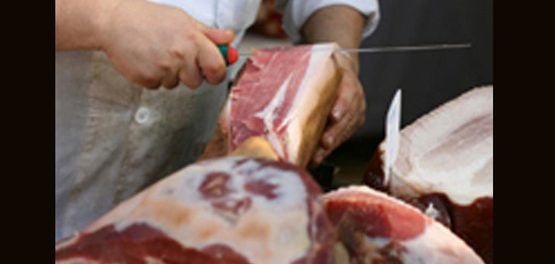For farmers seeking to regain some control over butchering their animals, there is a middle option between being at the whim of slaughterhouse schedules and opening your own slaughterhouse. That middle ground involves taking control of the cutting and packaging of your meat in a commercial kitchen. If done properly, with access to USDA slaughter and your own state-issued 20-C license, you can still sell your meat directly to consumers by the cut. But there’s a lot to know to make this work.
In the latest webinar from the Cornell Cooperative Extension’s Livestock Program Work Team, experts will detail the regulatory aspects of meat-cutting in a 20-C kitchen, including requirements for building a 20-C kitchen and where farmers are allowed to sell meat processed in this way. They’ll also discuss the logistics and economics of the whole endeavor from a farmer perspective: getting slaughter-only dates at a USDA plant, transporting a carcass safely, where to get meat-cutting experience, and other factors that would influence whether this is the right decision for your farm.
Cutting Meat in a Commercial Kitchen: 20-C Licenses and Selling Cuts of Meat from Your Farm
Wednesday, March 31, from 12 p.m. to 1:30 p.m. via Zoom
This webinar will be an interactive discussion with Cory Skier, Supervisor in NYS Ag and Markets Food Safety Inspection Division, and Heather Sandford, founding farmer and butcher at The Piggery, now with Empire Food Consultants. The conversation will be facilitated by Erica Frenay, livestock specialist and online course coordinator with the Cornell Small Farms Program.
The Cutting Meat in a Commercial Kitchen Webinar is part of a larger partnership between the Cornell Small Farms Program and CCE livestock educators to support livestock producers in the state by developing collaborative resources like the Guide to Direct Marketing Livestock and Poultry, online courses on livestock management, and the 2017 Livestock Summit.
Also, the Cornell Small Farms Program contributed a paper on the livestock industry as part of a series of nine papers on the impact of COVID-19 on selected agricultural sectors by experts from the College of Agriculture and Life Sciences (CALS) at Cornell University.









 Your Privacy Choices
Your Privacy Choices
Leave a comment